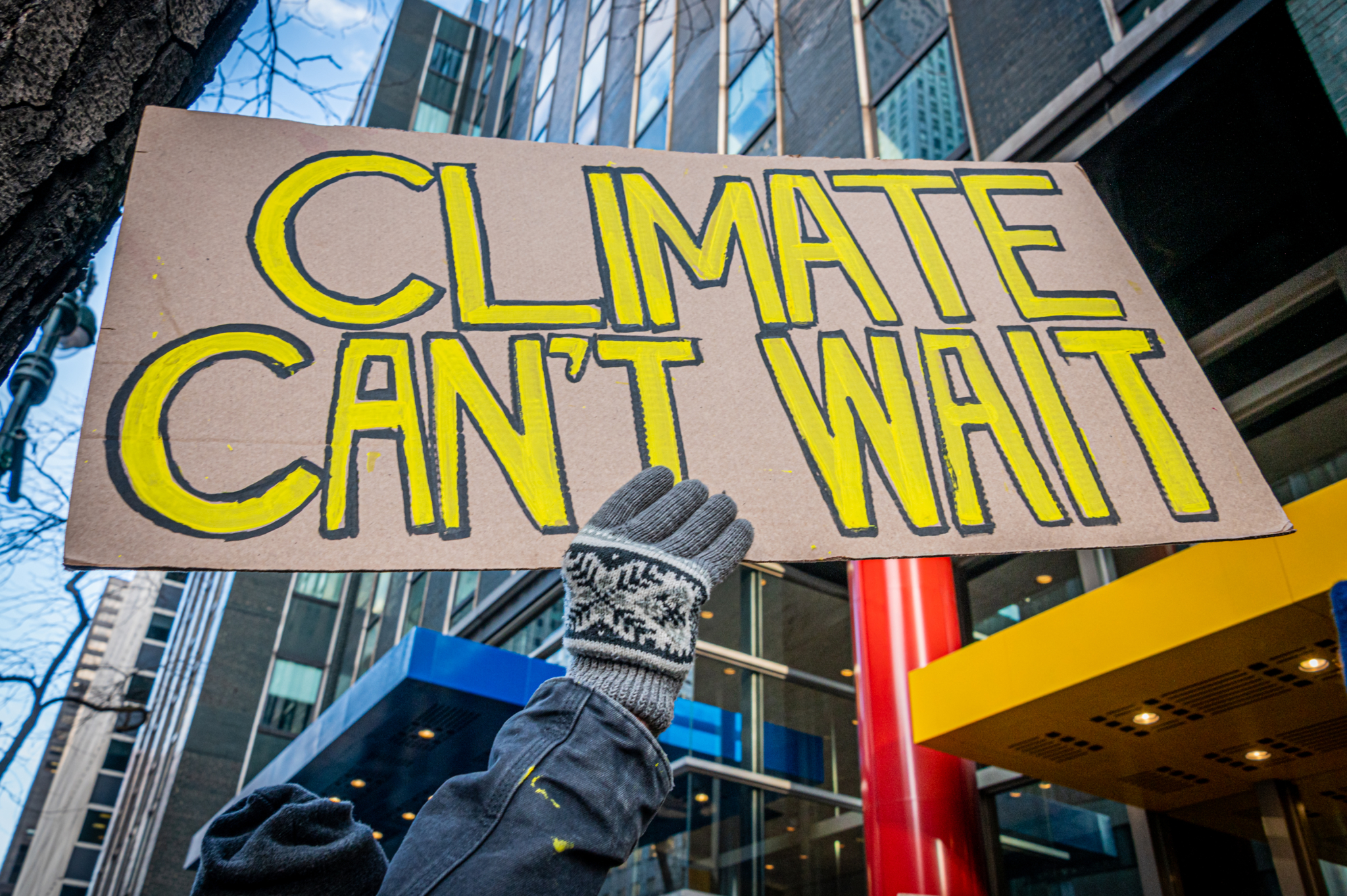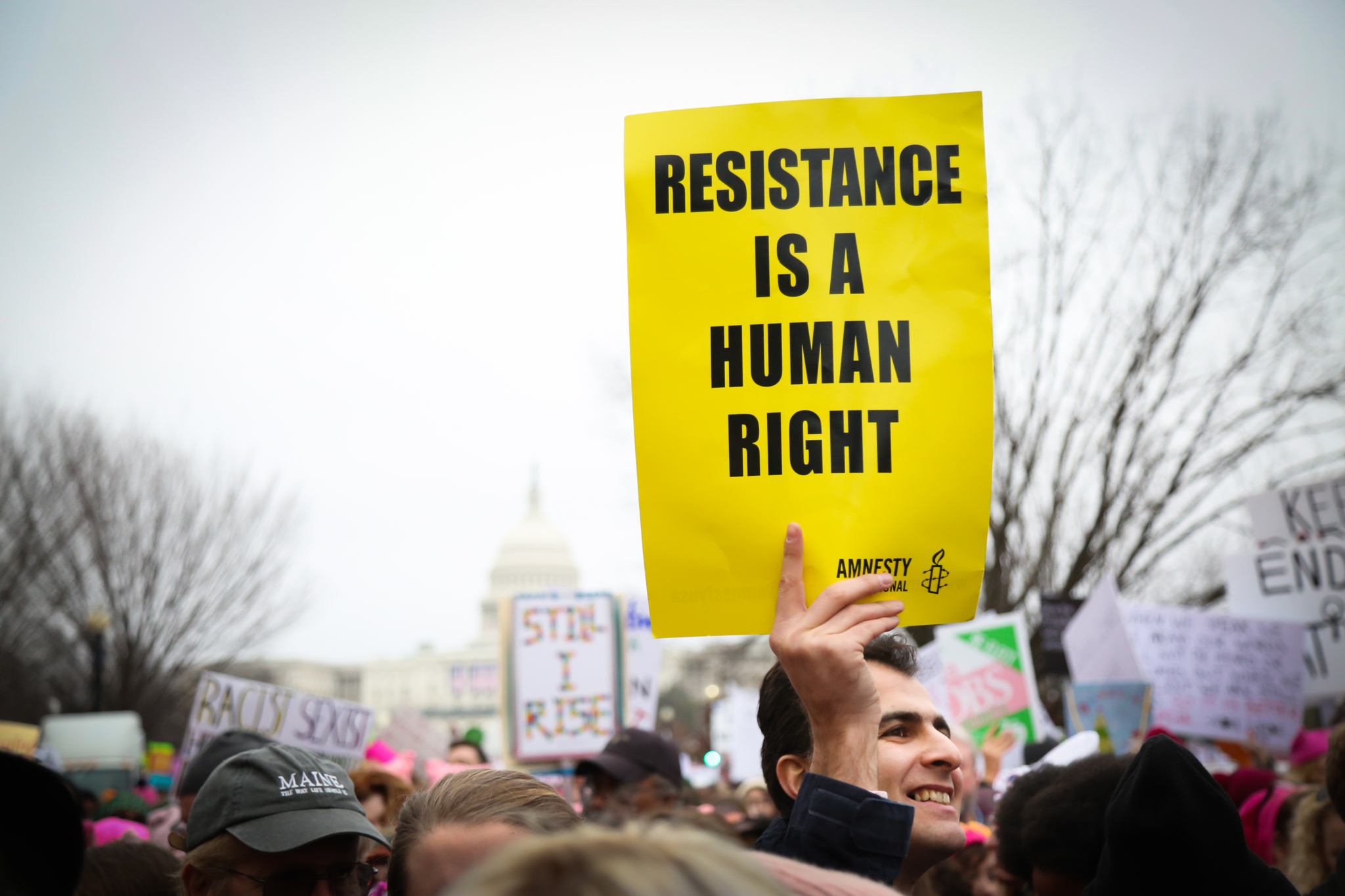As Donald Trump is inaugurated as the 47th President of the United States of America, the executive directors of all Amnesty International Americas sections joined to share concerns on President Trump’s agenda and possible threats to human rights, in the U.S. and around the world, and his impacts on Americas region especially. Amnesty International Directors also reminded the incoming U.S. administration of its international human rights obligations, which will possibly test the responses that humanity requires, in a challenging and polarized environment.
“Our mission at Amnesty International is human rights for all, and we will continue to mobilize millions of people around the world to ensure human rights are protected, no matter who is in the White House,” said Ana Piquer, Americas director at Amnesty International, “Especially because we know that the human rights impacts of U.S. policy can have an expansive wave effect on the rest of the American continent and the world.”
‘The threat of disregarding the human rights of people seeking safety in the U.S. — or in any part of the continent — and the right to asylum demands us to alert the international community to the danger that these discourses pose if adopted as policies.’
Marcos Gómez, Director, Amnesty International Venezuela
The rhetoric used by President Trump in his previous term and during his most recent campaign targeted the most vulnerable, especially migrants, and he plans to deport millions of people and close the borders of the United States, without considering cases in which people need protection. Amnesty International has documented that mass deportations only fuel human suffering and increase regional instability.
“The threat of disregarding the human rights of people seeking safety in the U.S.— -or in any part of the continent — and the right to asylum demands us to alert the international community to the danger that these discourses pose if adopted as policies,” said Marcos Gómez, director of Amnesty International’s Venezuela section. “Countries cannot ignore their international obligations to guarantee and protect people in search of safety and better living conditions.”
While a new Trump administration may exert pressure on Mexico around borders, security, and militarization, we will continue to hold the Mexican government accountable for its responsibilities under international law.
“It would not be the first time that accusations from the neighbor to the north have an impact on public policies in Mexico that have not only proven ineffective but also put the Mexican population at risk of further harm, including extrajudicial killings or enforced disappearances”, said Edith Olivares, director of Amnesty International Mexico. “We will continue to remind the Mexican government that militarization and ‘iron fist’ policies are contrary to human rights obligations.”
Although some governments in the Americas region have shown a tendency to attack civil society space, as well as freedom of expression and association, President Trump in the White House could signal fewer institutional controls or even inspire the arbitrary use of power.
“Attacks on journalists, human rights defenders, and judicial independence have no ideological distinction and can easily spread throughout the continent if there is no unequivocal support for organized civil society,” said Rosalía Vega, director of Amnesty International’s Paraguay section. “From governments that consider themselves on the right such as Argentina, El Salvador and Paraguay, to governments that call themselves left-wing such as Mexico, Nicaragua, Cuba, and Venezuela, we will continue to demand the protection of civic space and human rights defenders.”
Another growing concern with President Trump’s administration is the protection of women’s rights to live free from violence, as well as the right to sexual and reproductive health, including abortion, which were under attack in President Trump’s first presidential term.
“The increasing tendency to attack the wins that women’s and LGBTQI+ rights’ movements have achieved in the Americas will be met with fierce resistance and solidarity, from the northernmost to the southernmost of our continent,” said Mariela Belski, director of Amnesty International Argentina.
U.S. must do its part to address climate change
The climate crisis is one of the greatest threats to human rights today, bringing dangers of famine, humanitarian crises, poverty, and homelessness across the globe. As the world’s second biggest carbon emitter and the world’s largest economy, the U.S. has a pivotal role to play in preventing the human rights catastrophe that will be inevitable unless greenhouse gas emissions are drastically reduced. Under the Paris Agreement, the U.S. has a responsibility to do its part to prevent the climate catastrophe. President Trump’s expected decision to withdraw the U.S. from the Paris Agreement is an assault on human rights.

“The impacts of the climate crisis on human rights are undeniable and demand urgent attention. All countries in the Americas must assume their responsibility to prevent the worst of the climate crisis, from protecting environmental defenders to making a just energy transition away from fossil fuels,” said Marina Navarro, director of Amnesty International’s Peru section. “We must listen to young people and indigenous communities who are demanding that all countries take concrete action on the climate crisis, and the United States will be no exception.”
This climate crisis particularly affects Caribbean areas, including Puerto Rico. Given President Trump’s record on Puerto Rico, there is also deep concern about how the new Trump administration is going to pay off the debt of exclusion, marginalization and neglect on the island.
“In the wake of Hurricane Maria, Puerto Rico suffered the apathy and abandonment of the Trump administration. Today we are concerned that a new term means greater climate risks and greater vulnerability,” said Liza Gallardo, director of Amnesty International Puerto Rico. “We demand that preventive measures are taken to mitigate the high levels of vulnerability that occurred in the past and the diminished capacity of the local government to respond to crises.”
“It is essential for states to work together to address the climate crisis and its effects,” said Jurema Werneck, director of Amnesty International’s Brazil section. “The U.S. must be a goodwill participant in COP30 to be held in the Brazilian Amazon this year. The U.S. and the rest of the major emitting countries must rise to their responsibilities and make clear commitments to prevent the worst impacts of the climate crisis.”
International cooperation needed to protect human rights
Human rights violations cannot be observed in isolation due to the interconnection and interdependence of rights, but also because of how today discourses, social and economic policies and geopolitics are factors that generate interdependence in different contexts, countries and regions.
“International cooperation continues to play a fundamental role in the protection and guarantee of human rights,” said Lucía Pérez Chabaneau, director of Amnesty International Uruguay. “The United States must renew its support for Haiti’s security needs with a focus on human rights, joining other countries in the region that have opted for a solution led by the Caribbean country.”
In 2025, other countries in the region, such as Honduras, Bolivia, Ecuador, Canada and Chile, will hold presidential elections, so all Amnesty International offices in the Americas will demand an adherence to human rights obligations, seeking to avoid radicalized, discriminatory narratives and rhetoric that are contrary to human rights. The United States should be a leading voice in supporting human rights throughout the hemisphere, no matter which political party is in power.
“Latin American societies have seen for years how political decisions in the U.S. have an influence—often unwelcomed—at the local level,” said Rodrigo Bustos, Amnesty International’s director for Chile. “This time, we hope that human rights movements across the continent, with the support of and supporting local movements, will serve as a multiplier effect to prevent the spread of hatred and discrimination.”
Canada, which shares the longest territorial border with the United States, will also hold elections this year, at a time of deeply polarizing public opinions.
“We will continue to demand that authorities and candidates at all levels remain committed to human rights, and that messages that target vulnerable individuals and communities will not find a sounding board in Canadian society,” said France-Isabelle Langlois and Ketty Nivyabandi, directors of Amnesty International Canada, Francophone section and English-speaking section respectively.
“The influence of the United States of America transcends its borders and even the continent. President Trump will no doubt make his mark in foreign policy, arms trade, and multilateralism. His history and campaign promises warn of major threats to human rights within and outside of U.S. borders,” said Piquer. “As the largest grassroots human rights organization in the world, we are ready to defend human rights and work towards a just, secure and healthy future for all. We are more powerful together than apart.”
Header photo credit: Lauren Murphy/Amnesty International






















